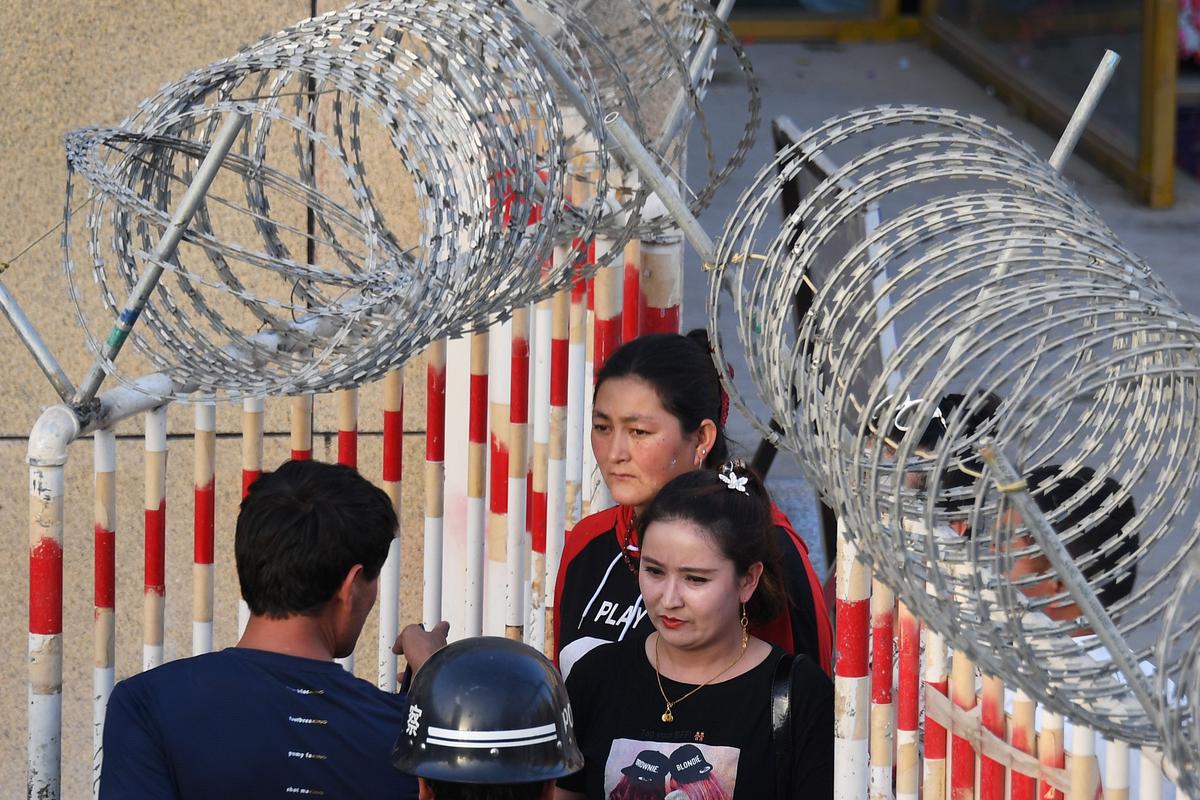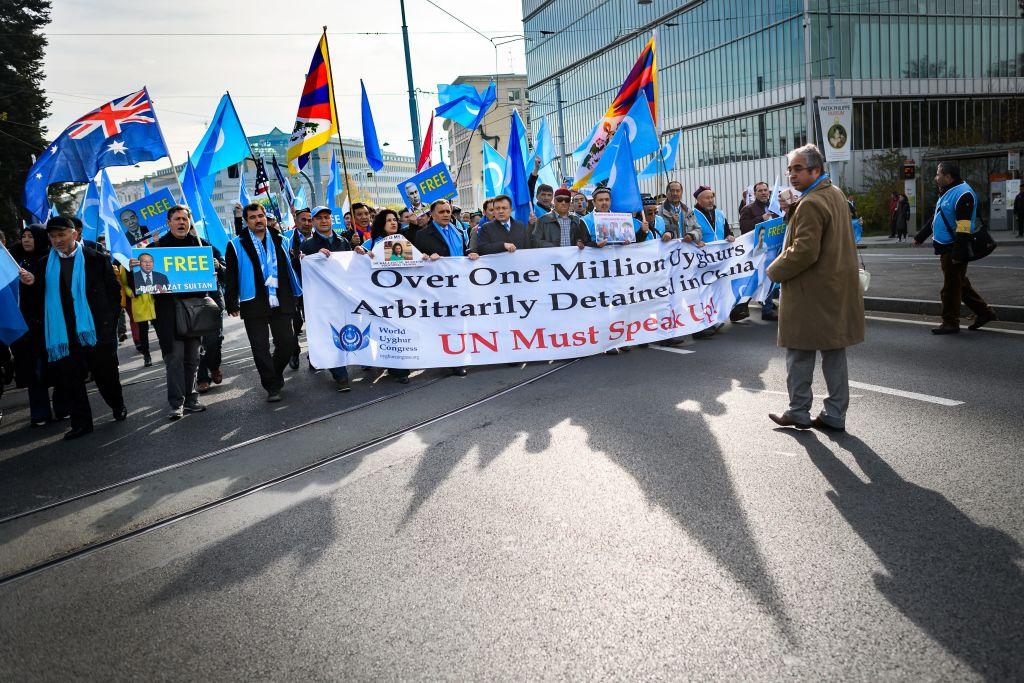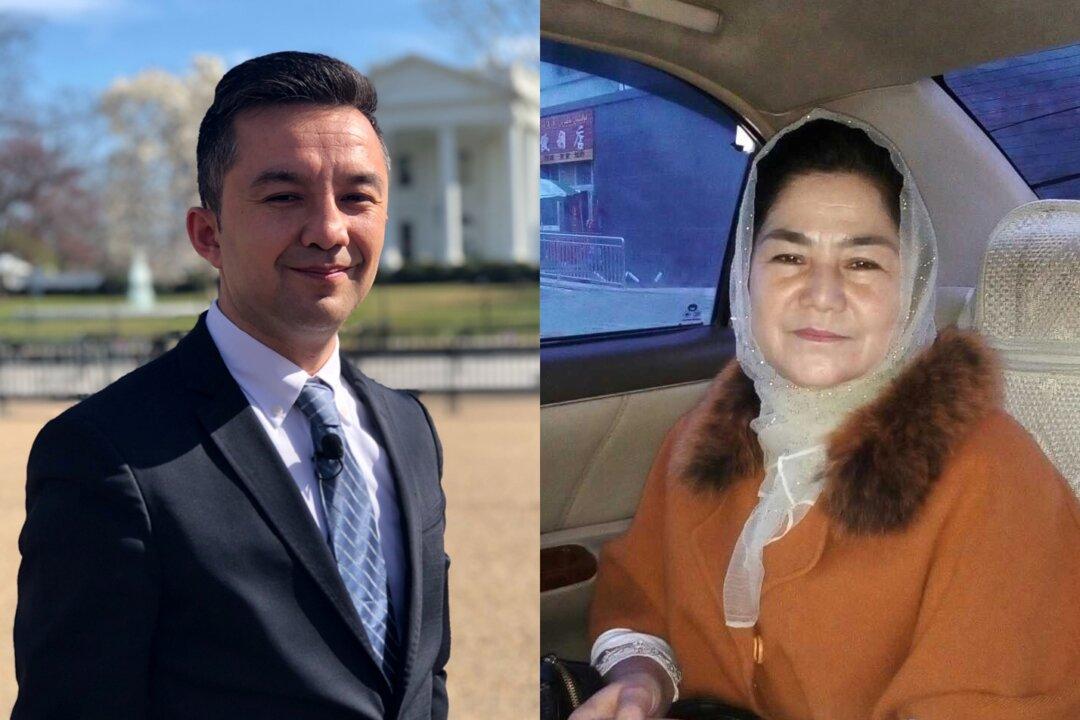LONDON—World leaders must take a tougher line on China’s use of high-tech surveillance to monitor and crack down on its ethnic minorities, a Uyghur activist urged on Nov. 14, after his mother was detained and then imprisoned.
More than one million Uyghurs and other Muslims have been detained in massive complexes built in China’s northwest Xinjiang region since 2017, according to the United Nations.
The Center for Strategic and International Studies, a U.S. think tank, says Uyghurs are being used for forced labor.
Beijing has denied any mistreatment and says the sites are “vocational training centers,” but former detainees have described interrogations, torture and brutal indoctrination.
Ferkat Jawdat, 27, a software engineer who moved to the United States in 2011 with three siblings to join his father, turned to activism last year after his mother Minaiwaier Tuersun was sent to a camp.
Seven other of his relatives have also been detained.
“More and more camps are being built. I’m not seeing any end to what’s happening to our people,” said Jawdat, who will address the Thomson Reuters Foundation’s annual event, Trust Conference, in London on Thursday.
“I know it’s not going to stop with my mum. It will be extended to other regions of China. That’s why I choose to become the voice of the voiceless.”
Jawdat believed many people were targeted for having family outside China. None of his family have committed crimes and no reason has been given for their internment, he said.
After he started speaking out, his mother was sentenced to seven years in prison, and an aunt and uncle to eight years.
But his mother became so ill in jail that she was returned to the camp. She was released in May but remains under watch.

Constant Surveillance
“Her cell phone is being monitored all the time. Everything we say is being listened to,” Jawdat said.The United States said last week it was deeply troubled by reports the Chinese regime had harassed or detained relatives of Uyghur activists who made their stories public.
Jawdat said there was also evidence China was using Uyghurs for forced labor in factories in Xinjiang which produces most of China’s cotton.
“There’s a huge possibility that things we use in our daily lives come from those camps, especially clothes,” he added. The United States recently blocked imports from one Xinjiang-based clothing company, citing concerns over forced labor.
Jawdat said China wanted to erase the culture of its 10 million Uyghur population as part of a wider effort to assimilate its 55 minorities into its majority Han culture.
China insists Xinjiang is its internal affair, and the issue there is not a religious or ethnic one, but about preventing terror and separatism.

Jawdat said the Uyghurs were a particular target because Xinjiang lies at the start of Chinese leader Xi Jinping’s massive “One Road, One Belt” (OBOR, also known as Belt and Road) project which envisions rebuilding the old Silk Road to connect China with Asia, Europe and beyond.
Human rights groups say cutting-edge mass surveillance is central to China’s campaign of repression, with officials routinely scanning Uyghurs’ ID cards, searching their phones, and taking photos and fingerprints.
Checkpoints and cameras are everywhere, said Jawdat, who had heard reports of facial recognition cameras set up in major cities to pick up the faces of Uyghurs and other minorities.
Last month the United States blacklisted some of China’s top tech companies, including leaders in facial recognition technology, that it said were implicated in the crackdown. It also announced visa restrictions on some Chinese officials.
“In the beginning I was speaking out about my mum, but I’m now speaking out for my daughter’s future,” said Jawdat.
“If we fail to stop this right now this will get expanded to other parts of the world.”





